H.L. Brown Sheffield: Insurrection, armed raids and polished perfection in story of one of city's oldest firms
and live on Freeview channel 276
The story behind the historic jewellers H.L. Brown is a compelling one, beginning with its remarkable founder's escape from persecution and continuing with the latest generation of expert watchmakers and jewellers who are preserving a dying craft.
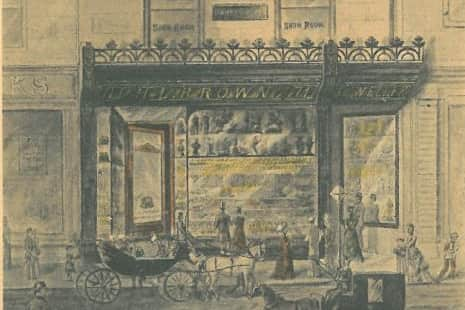

The Star sat down with managing director James Frampton, the great-great-grandson of founder Harris Leon Brown, to learn more about the firm's fascinating 163-year history.
Advertisement
Hide AdAdvertisement
Hide AdIn his office above the shop on the corner of Barker's Pool and Leopold Street, looking across to the town hall clocktower, he is watched over by his predecessors including his late father Michael Frampton, who ran the family firm for nearly 30 years.
Asked about the secret to being one of Sheffield's oldest businesses - he prefers the term 'longstanding' - James points out that family-run jewellery businesses have survived the vicissitudes of the retail sector better than most.
He says it is important to be seen on the shop floor and out and about in town by customers, helping to build up a good relationship with them and ensure they know you are someone they can trust with their precious jewellery and watches.
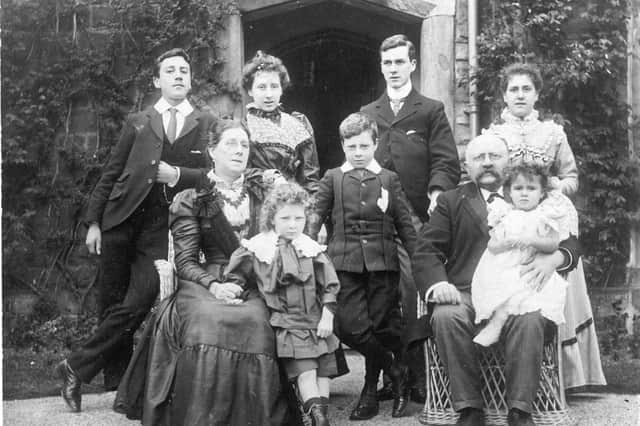

"We don't just sell jewellery and watches here. We service and maintain them, and we do valuations," he says.
Advertisement
Hide AdAdvertisement
Hide Ad"It means something that you've been around quite a while as a business because with us it's all about reputation and reliability," he says.
Covid was a boom time for jewellery industry
"But we don't want to rest on our laurels and think we deserve customers' respect just because of our history. We want to prove our history means something and we still have the expertise and provide as good a service as ever to those customers putting their trust in us."
James is 'almost ashamed' to admit that for all the challenges many people and businesses faced during the Covid pandemic, it was a boom time for the jewellery industry as a place where those fortunate enough could still 'enjoy their wealth'.


But as the trickle-up effect means the cost-of-living crisis starts to hit even the most affluent in society, he explains, times are getting harder for jewellers.
Advertisement
Hide AdAdvertisement
Hide AdJames says the business is still playing catch-up when it comes to the internet, and social media in particular, having initially been quite 'cynical' about their importance.
Watching city centre's 'painful rebirth'
But the firm is now moving with the times, investing in its online branding while maintaining its traditional high street presence.
In 2020, its flagship Sheffield city centre store underwent a major refurb, including the creation of a Rolex showroom to reflect its status as one of the leading watchmaker's official retailers.
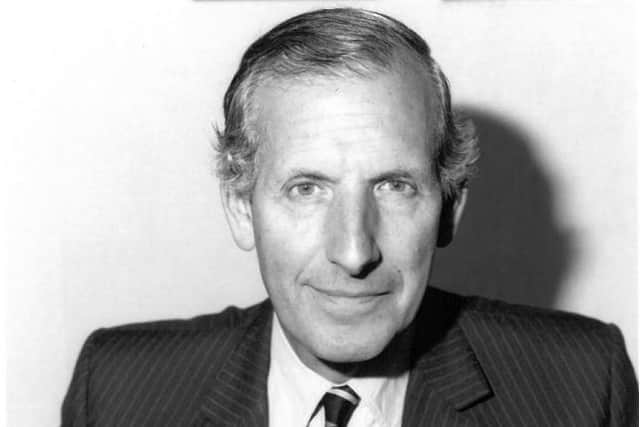

James, whose office overlooks Fargate as it undergoes its own multi-million pound revamp, hopes Sheffield city centre can emerge similarly revitalised from what he calls its 'painful rebirth'.
Advertisement
Hide AdAdvertisement
Hide Ad"We try to stay positive," he says, before adding that he feels the city centre's reinvention 'lacks ambition'.
Founder fled to England as a teenager
When it comes to moving with the times, James looks to the example set by his great-great-grandfather.
Harris Brown (initially Braun before adopting the Anglicised version) came to England from Poland in 1861, aged just 19.
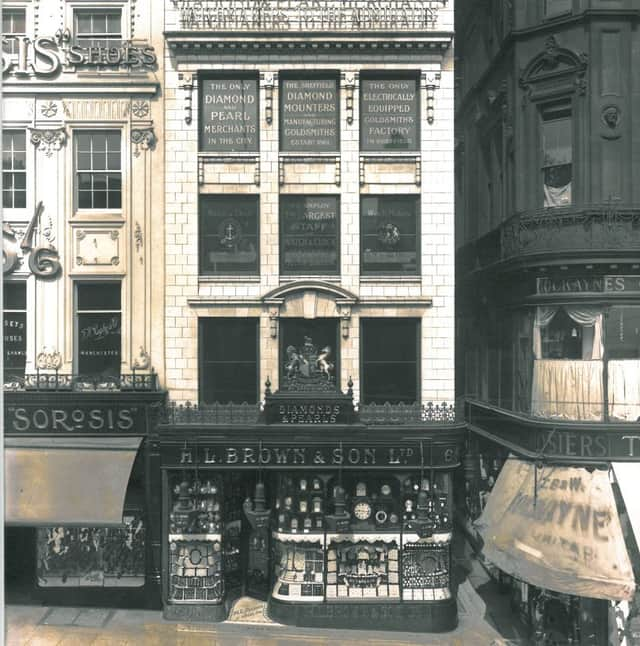

According to family legend, he had to flee via Hamburg after being involved in an insurrection against the then Russian authorities.
Advertisement
Hide AdAdvertisement
Hide AdHe ended up in Sheffield due to his family's connections with Alfred Beckett & Sons and he began repairing watches and clocks in the city's Lower Don Valley.
Harris Brown was an 'absolute trailblazer'
That the business flourished as it did, says James, was as much down to his 'big personality' as it was to his craftsmanship.
"He was one of those absolute trailblazers. He was probably quite a charmer but he also knew how to shout very loudly in the newspapers," says James.
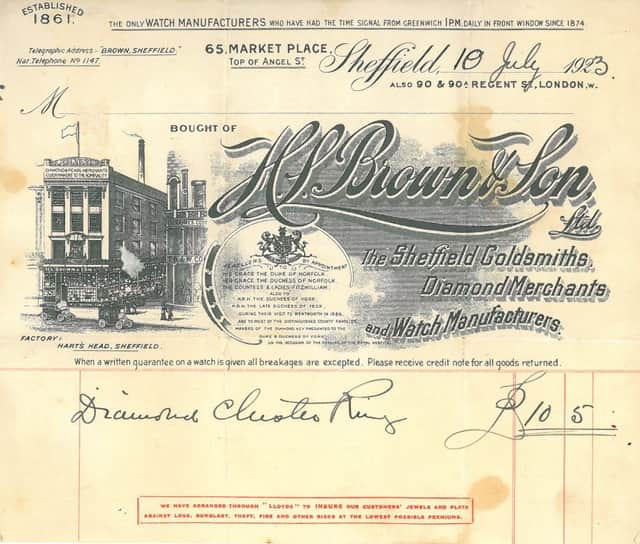

That included boasting about how he supplied the local nobility, with the names of feted customers emblazoned across adverts for the business.
Advertisement
Hide AdAdvertisement
Hide AdToday, those celebrities would be footballers, pop stars and the like, but the firm is more discreet and no longer shouts about its famous clients, instead helping them to preserve their privacy.
Firm's famous clients
One of Harris Brown's biggest innovations was the introduction of the famous one o'clock time signal, which was initially introduced at the company's shop on Angel Street in 1874.
It was connected directly to Greenwich by the miracle of telegraph, ensuring customers' watches could be accurately set to Greenwich Mean Time.
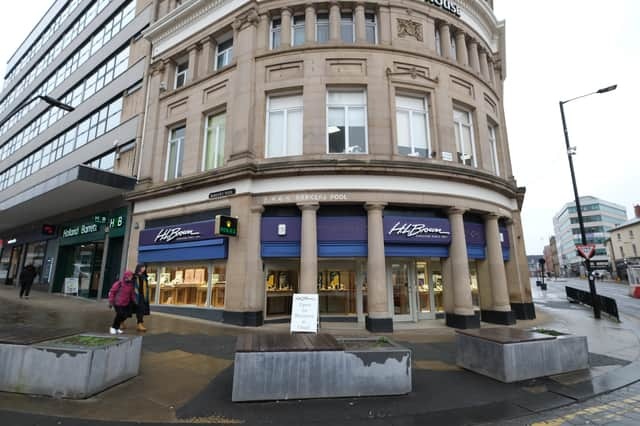

Some 150 years later, the time signal still sounds every day at 1pm outside the Barker's Pool store, with the high-pitched shrieking siren occasionally startling unsuspecting passers-by.
Advertisement
Hide AdAdvertisement
Hide AdIt can also be heard on special occasions, including on Remembrance Day, when it marks the beginning and end of the official silence.
Time signal let people know 'we're the kings of technology'
"The story of the siren is classic him (Harris Brown) showing the business was up with the latest trends and letting everyone know that we're the kings of technology," says James.
Today H.L. Brown has five stores, including one in Doncaster and others in York, Lincoln and Scarborough which the firm acquires and still trade under their original names.
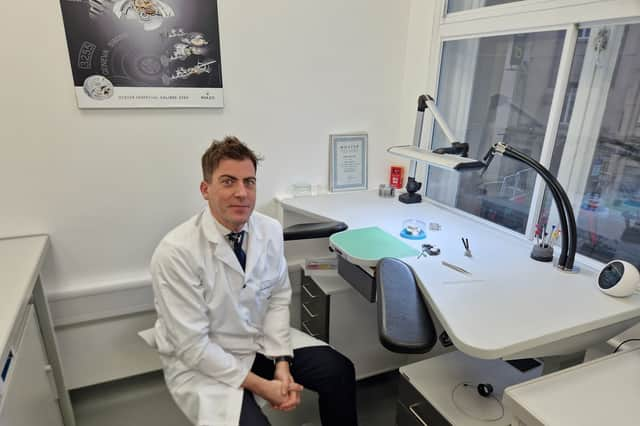

It briefly had a London shop, on fashionable Regent Street, back in the early 20th century, and more recently had an outlet at Meadowhall, which James said closed as the longer hours didn't suit its customers or staff, as he doesn't like anyone to work hours he wouldn't be happy working himself.
Advertisement
Hide AdAdvertisement
Hide AdThe business now has 50 employees, among them highly skilled craftspeople helping to preserve the dying arts of watchmaking and jewellery-making.
Keeping dying skills alive
Matt Ardron is the firm's Rolex-accredited watchmaker whose finely-honed skills keep customers' timepieces ticking reliably.
When clients bring in their treasured timepieces every 10 years or so for a service, he will painstakingly strip those watches and clean the hundreds of moving parts before putting them back together.
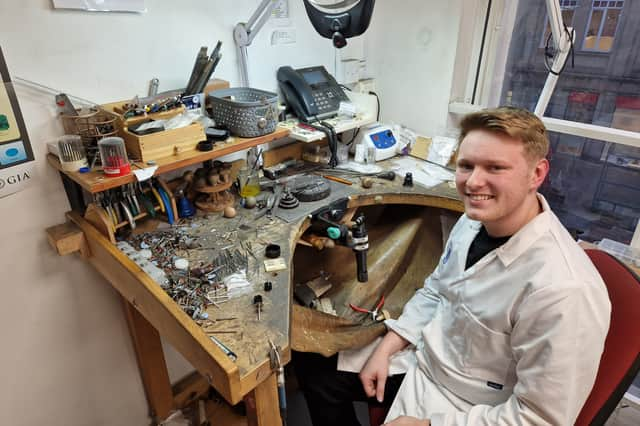

Matt shows me how, having been serviced, the watches are placed in a special machine to test their waterproofness up to 300m - a process that 'can be nervewracking but shouldn't be as you know you've done a thorough job'.
Advertisement
Hide AdAdvertisement
Hide AdHe explains how the luxury watch industry has exploded over the last 10-20 years but there is such a shortage of watchmakers it has been declared an endangered profession. H.L. Brown is doing its bit to help as it seeks to recruit a new technician for Matt to train.
'It's a stressful job but I love it'
Over in the jewellery studio are Tom Rigby and Jack Hague, two more young hands in an age-old profession.
Tom explains how he trained as a jeweller after getting laid off as a window-maker aged 19.
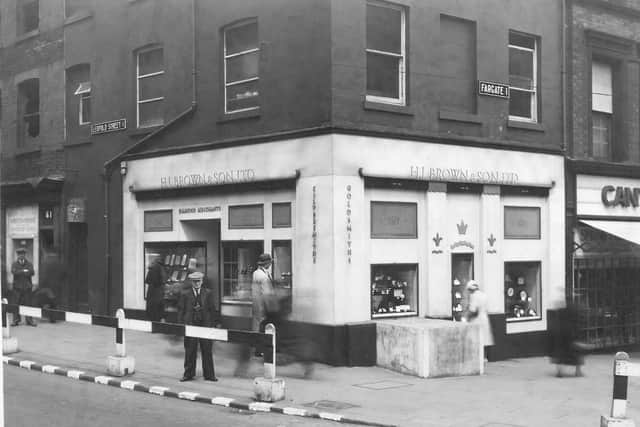

"It's hard work and it's a stressful job but I love it," he says. "You're always learning, you're always getting better."
Advertisement
Hide AdAdvertisement
Hide AdAs well as making repairs, including to the mayoral chains, they create custom jewellery, including a ring for a woman whose husband had passed away and who wanted his ashes encased within the keepsake.
First store opened on Gower Street
Although diamonds are famed as the hardest substance on earth, Tom explains, many people are unaware they can easily break if struck in the wrong place - not something you want to happen when you are re-setting stones worth tens of thousands of pounds.
H.L. Brown's first store opened in 1867 at 29 Gower Street and its city centre base has moved several times over the years, including in 1940 when it relocated to Fargate after its shop on Market Place was bombed during the Sheffield Blitz.
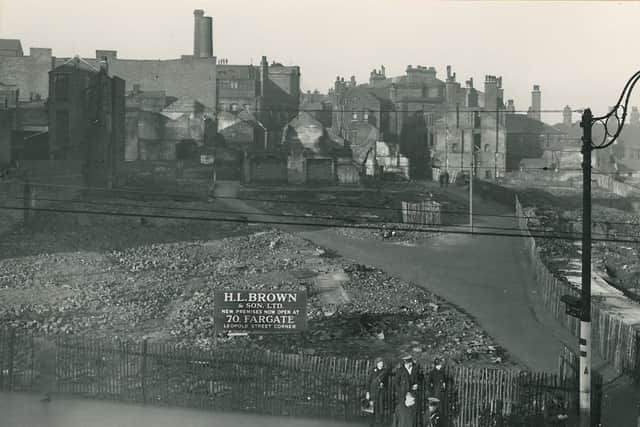

When Harris Brown died in 1917, he was succeeded by his son Bernard, with Bernard's son Colonel Dennis Brown joining the business in 1923.
Advertisement
Hide AdAdvertisement
Hide AdHarris Brown's great-grandson, Michael Frampton, joined the business in 1957, taking over as managing director from 1972 and serving as Master of the Worshipful Company of Clockmakers in 1997 and as High Sheriff of South Yorkshire in 1994/5.
Armed raids
James has been managing director since 2001, despite not initially planning to join the family business, with his heart set on a career in the Foreign Office.
Things could have been very different but he doesn't regret his decision to follow his late father into the trade, qualifying as a gemologist and gaining early experience at Mappin & Webb and at a Bond Street pawnbrokers during the 1980s.
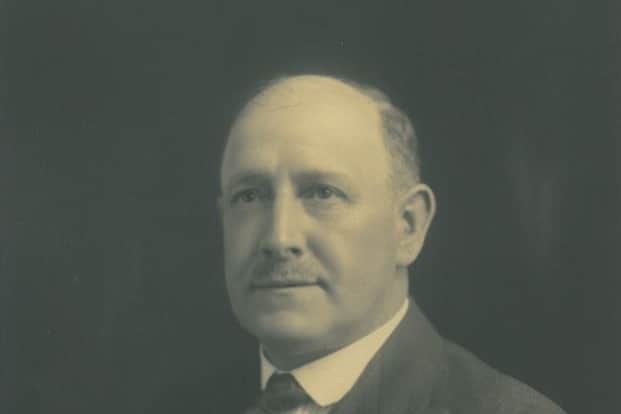

He enjoys the 'forensic' art of identifying and gemstones but takes most pleasure not from the jewels he works with but the characters he gets to meet through the business.
Advertisement
Hide AdAdvertisement
Hide AdIt's not all fun, though. He has experienced three armed robberies, including one when he was on the shop floor in Doncaster in 2015.
Future of family firm
"We had a smoke system and I pressed the alarm and held my member of staff's hand to reassure them," he says.
"I felt very frustrated at not being brave enough to do anything but hide until it was all over. You still feel disappointed with yourself for not being heroic even though the firm instructions are that nobody's to try anything heroic."
Advertisement
Hide AdAdvertisement
Hide AdJames can't bring himself to watch a film involving an armed raid, though he says there have been no break-ins since the company installed its 'ultra-high security' entrance doors.
As the fifth generation custodian of the business, James has two daughters in their 20s who he hopes might one day join the family firm, though he wants them to choose their own paths.
Whoever succeeds him when the time comes, he hopes the firm will continue to flourish for many more decades, with the siren outside its flagship store acting as a noisy reminder that one of Sheffield's most historic businesses is still alive and kicking.
Comment Guidelines
National World encourages reader discussion on our stories. User feedback, insights and back-and-forth exchanges add a rich layer of context to reporting. Please review our Community Guidelines before commenting.